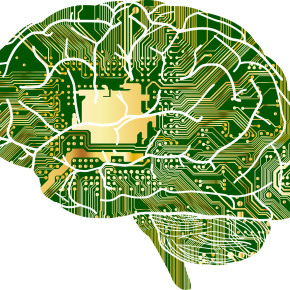Results of the French-German-Japanese call for projects: a fine example of international cooperation in artificial intelligence
The French National Research Agency (ANR) has unveiled the 9 projects selected in the framework of the call co-funded by the German Research Foundation (DFG) and the Japanese Science and Technology Agency (JST). Overall funding of over 7 million euros was made available to support progress in artificial intelligence research.
Japan implemented a science policy several years ago aimed at developing research in the field of artificial intelligence (AI). In 2016, AI was defined as one of the priorities of the Japanese Science & Technology Basic Plan 2016-2021. This is a government plan created in 1991 which sets out the country's scientific priorities over a five-year period.
In recent years many research centres specialising in AI have been set up in Japanese research institutes (RIKEN, AIST and NICT), universities and industry. The AI R&D Network was created to coordinate this research bringing together all the main Japanese actors in the field of AI.
To develop international collaboration projects in this context, the French Embassy in Japan in coordination with the Japanese AI R&D Network and the German Centres for Research and Innovation (DWIH) organised the 2nd French-German-Japanese Symposium on Artificial Intelligence. This was entitled "Human-Centric Artificial Intelligence" and took place from November 16th to 20th 2020.
The projects selected:
The ANR (France), DFG (Germany) and JST (Japan) launched a trilateral France-Japan-Germany call for artificial intelligence projects at the end of 2019 with the results published on October 16th 2020. 7 of the 9 selected projects are the result of a collaboration initiative involving laboratories associated with INS2I's research fields.
- Artificial Intelligence for Human-Robot Interaction which involves Aurélie Clodic, a CNRS research engineer at the Laboratory for Analysis and Architecture of Systems (LAAS-CNRS)
- Learning Cyclotron which involves Laurence Devillers, professor at the Sorbonne University and member of the Computer Science Laboratory for Mechanics and Engineering Sciences (LIMSI - CNRS)
- Research on Real Time Compliance Mechanism for AI which involves Jean-Gabriel Ganascia, professor at the Sorbonne University, member of the LIP6 (CNRS/Sorbonne University) and president of the CNRS Ethics Committee (Comets)
- Adaptive Artificial Intelligence for Human Computer Interaction which involves Jean-Claude Martin, professor at Paris-Saclay University and a member of the Computer Science Laboratory for Mechanics and Engineering Sciences (LIMSI - CNRS)
- Understanding and Creating Dynamic 3D Worlds towards Safer AI which involves David Picard, professor at the École Nationale des Ponts ParisTech and member of the Gaspard-Monge Computer Science Research Laboratory (LIGM - CNRS/Université Gustave Eiffel/École des Ponts ParisTech)
- AI empowered general purpose assistive robotic system for dexterous object manipulation through embodied teleoperation and shared control which involves Liming Chen, professor at the École Centrale of Lyon and member of the Computer Science Laboratory for Image Processing and Information Systems (LIRIS - CNRS/INSA Lyon/ Claude Bernard Lyon 1 University/ Jean Monnet University /Université Lumière Lyon 2/École Centrale de Lyon)
- Knowledge-enhanced information extraction across languages for pharmacovigilance which involves Pierre Zweigenbaum, CNRS senior researcher at the Computer Science Laboratory for Mechanics and Engineering Sciences (LIMSI - CNRS)
